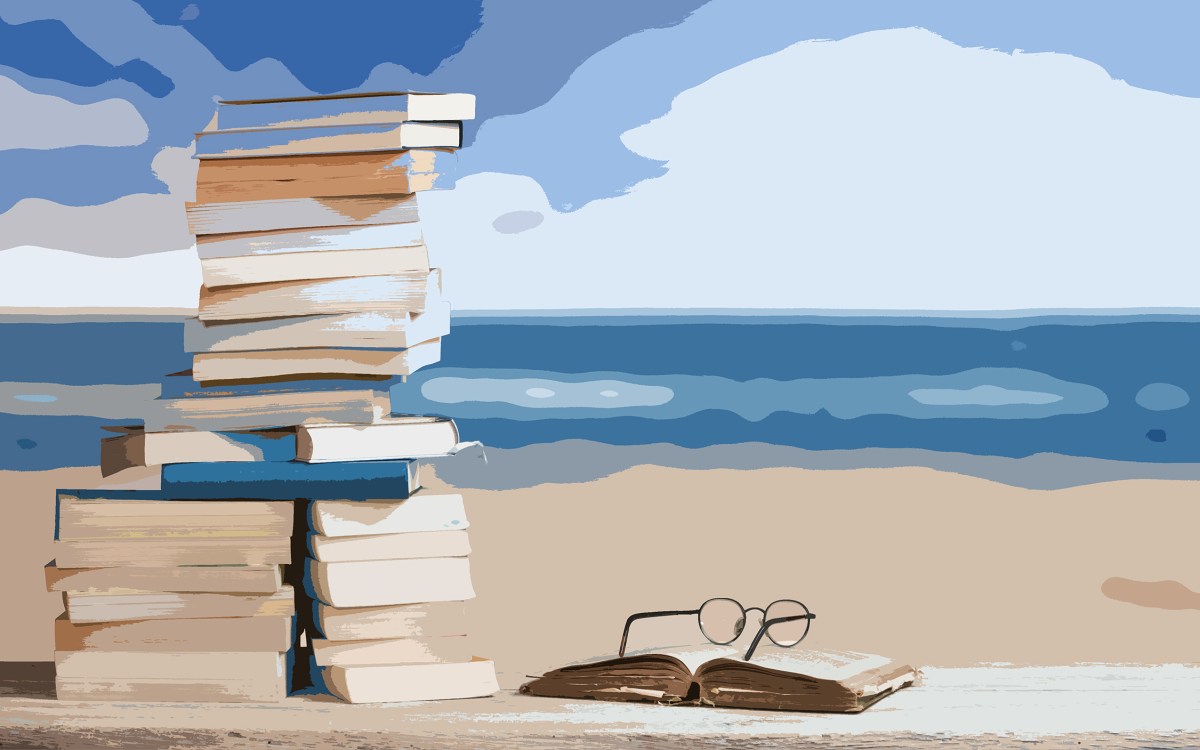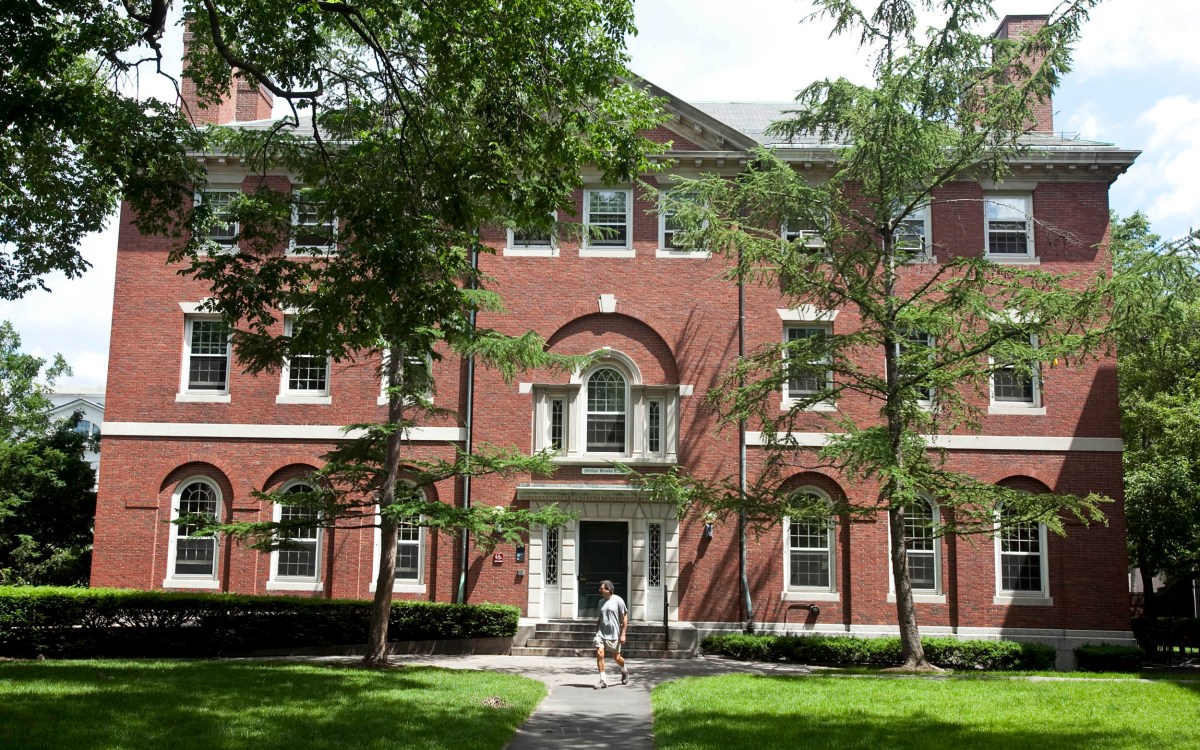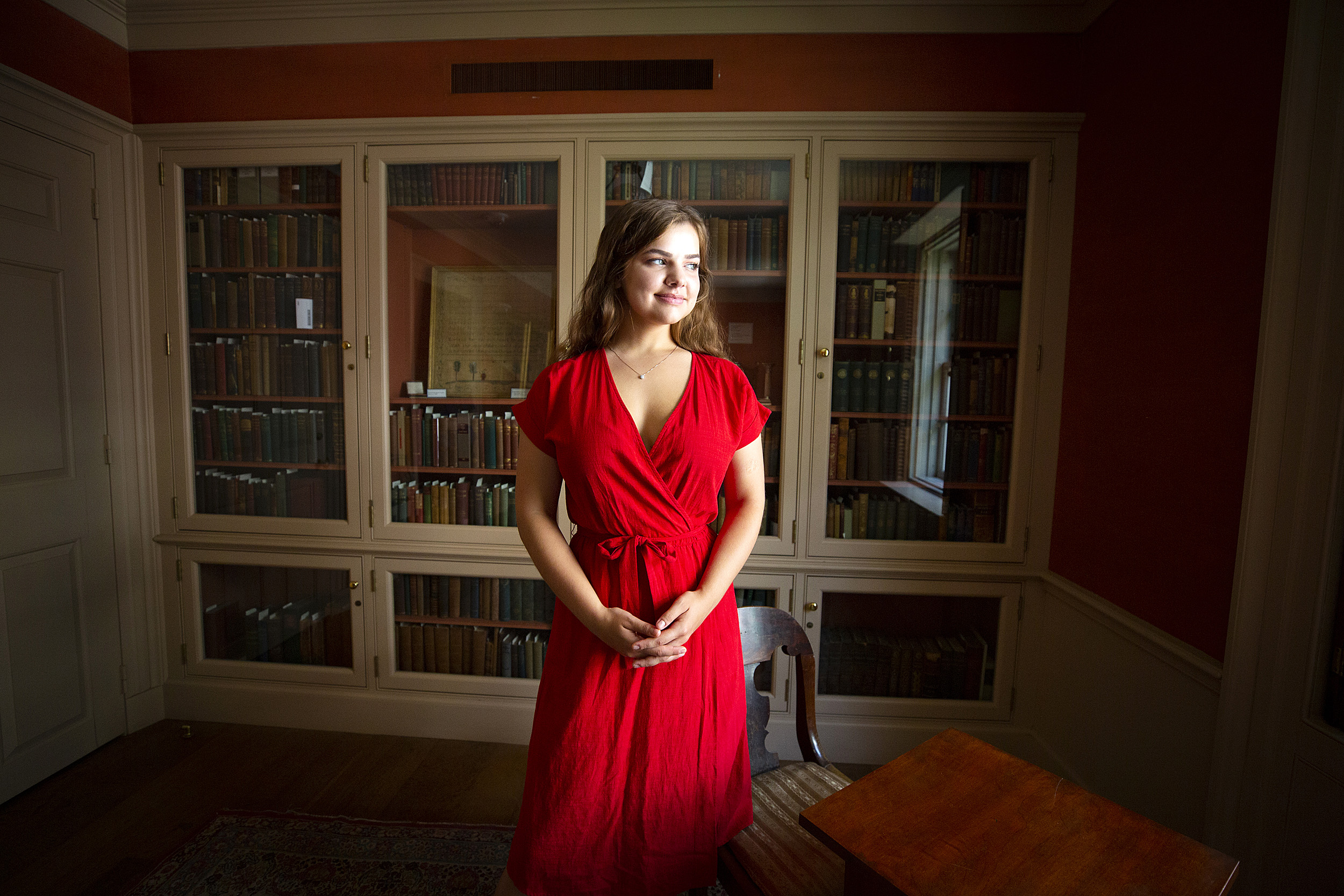
Elizabeth Propst ’22 is working on a project “Poetry in America” with Professor Elisa New for her undergraduate summer research fellowship.
Stephanie Mitchell/Harvard Staff Photographer
Research and everyday life
Encouraging students from diverse disciplines to chase passion projects
Elizabeth Propst’s teachers often used online materials to supplement the limited resources of her high school in Asheville, N.C. This summer, she’s developing material for students in similar situations as a participant in the Summer Residential Research Programs offered by the Harvard College Office of Undergraduate Research and Fellowships.
From June to August, Propst ’22 and other undergraduates from diverse disciplines — including the sciences, arts, humanities, and social sciences — live together in the Research Village at Winthrop House while working on faculty-led or independent research projects. Many students view the program as an opportunity to engage with issues they personally care about and to reimagine the role of research in everyday life.
Propst, who plans to concentrate in English, is a fellow with SHARP (the Summer Humanities and Arts Research Program) for Poetry in America, a digital initiative across platforms that offers free courses and television programming on the art and history of poetry created by Powell M. Cabot Professor of American Literature Elisa New.
“I know firsthand how important it is to have high-quality digital resources for education,” said Propst, who is helping retool an online poetry course, originally taught to college students, into a new pilot program aimed at students in Title I high schools, where a high percentage of students come from low-income families. She researches poems that embody different course themes, including the city, coming of age, and protest, by poets from Walt Whitman to Kendrick Lamar.
“In the office, I act as a sounding board for a lot of the stuff that we’re working through because I was the person who was most recently in a low-income public high school,” she said.
Through his SHARP fellowship, Jonathan Yuan ’22 is engaging with a different community: Harvard Square. The Massachusetts native is working with Suzanne Preston Blier, the Allen Whitehill Clowes Chair of Fine Arts, professor of African and African American Studies, and director of undergraduate studies in the Department of African and African American Studies on Be the Change! Harvard Square and its Setting, a project that develops research-backed recommendations for future development that maintains the neighborhood’s unique community atmosphere.
Jonathan Yuan ’22 visits the closed Curious George store in Harvard Square while working on his summer project Be the Change! Harvard Square and its Setting.
Kris Snibbe/Harvard Staff Photographer
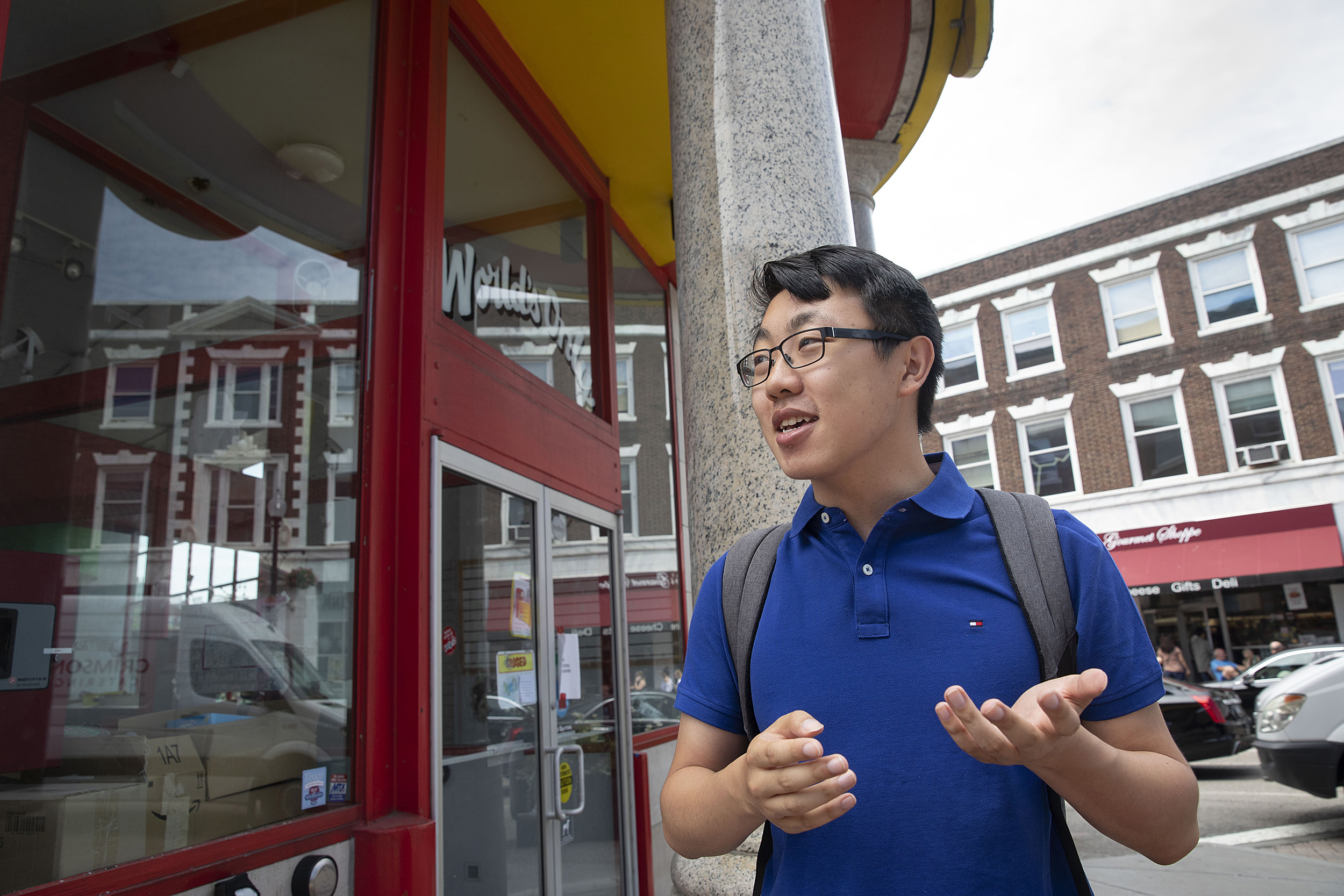
“I’m drawn to the project because Harvard Square is very local to Harvard and is a place I feel attached to,” he said. “I want to do something that has an impact in a community, and this kind of work that is central to a place and people has strengthened that wish for me, to change a place for the better.”
Yuan’s tasks include categorizing local businesses, noting vacancies and property ownership information for every storefront in the square, as well as interviewing business owners, city officials, and residents. The combination of community engagement, data analysis, and urban planning research allowed him to explore many areas of study and narrow his goals for the future.
Julia Shea ’20 is embedded in Harvard’s social world for her fellowship through the BLISS (Build Learning through Inquiry in the Social Sciences) program, working in the lab of Edgar Pierce Professor of Psychology Daniel Gilbert on a study about the social dynamics of Harvard roommates. Shea, who is concentrating in psychology with a secondary in molecular and cellular biology, is using data analysis and visualization methods to map survey results from undergraduates about their feelings of closeness with one another.
Julia Shea ’20 is studying the social dynamics of Harvard roommates.
Jon Chase/Harvard Staff Photographer
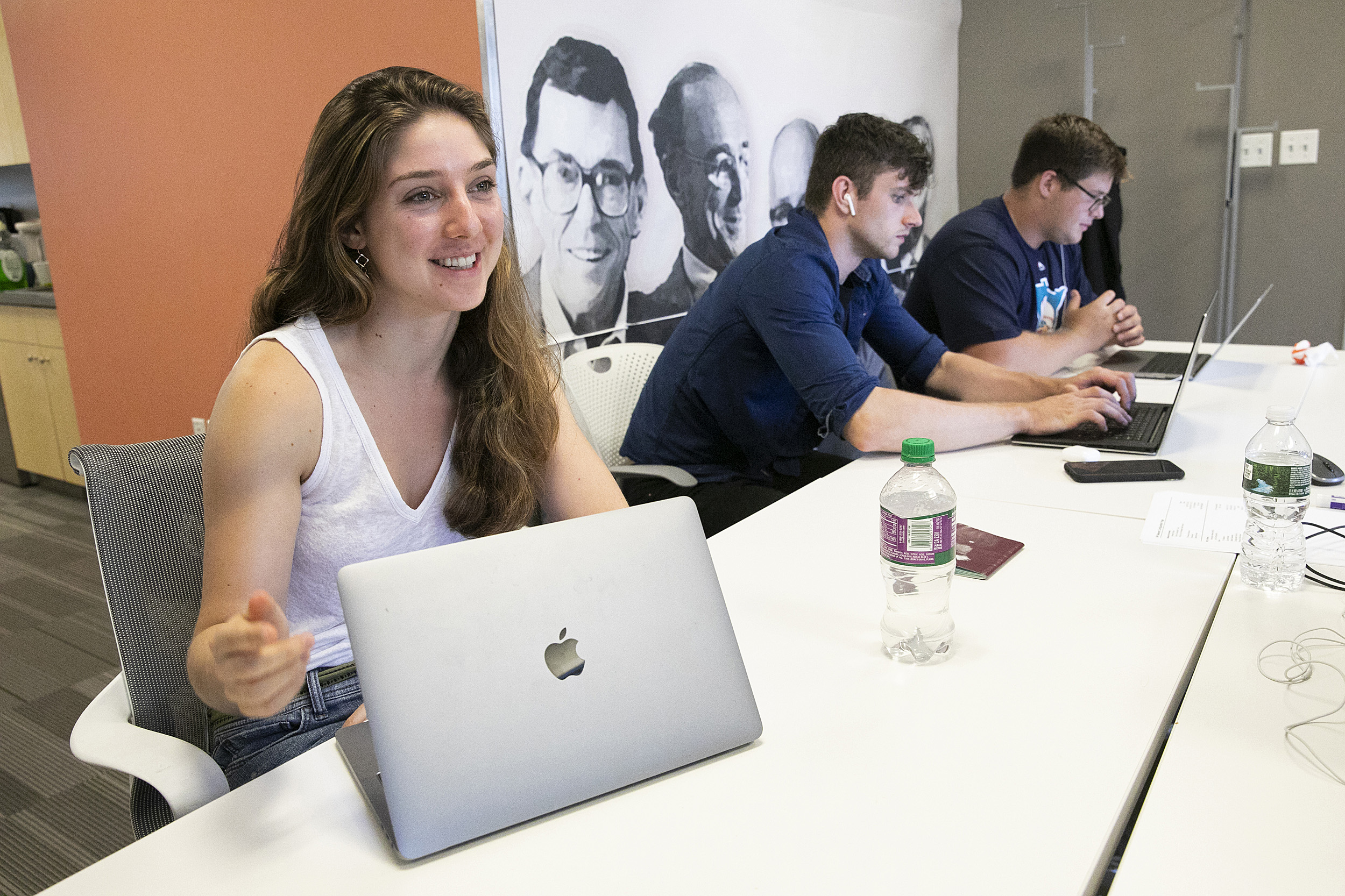
“I like lab research because it’s generative,” said Shea, who is working closely with Gilbert, Adam Mastroianni, a Ph.D. student in psychology at the Graduate School of Arts and Sciences, and a group of summer interns on the project. “It’s not just about reading things that have already been written, but looking into the future and talking about what questions we can answer.”
The results of the study show that in groups of friends, individuals tend to self-enhance and overestimate their value to the group, illustrating some of the ways in which people can distort or misinterpret social situations. Shea may not be working in the lab when the findings are published, but seeing the research process in action has helped her understand better how to approach such projects in the future.
“It’s important to pick a project where you’re invested in its outcome,” she said. “It becomes a puzzle to solve rather than doing data analysis that you don’t care about. Having the process be one of discovery makes the project enjoyable.”
Ciara Hervás’ commitment to social justice led her to the Long 19th Amendment project managed by the Schlesinger Library at the Radcliffe Institute for Advanced Study and led by digital humanist Rachel Guberman. Launching in 2020, the project commemorates the centennial of the passage of the amendment to the U.S. Constitution that granted the right to vote to some women. In addition to a physical exhibition on suffrage history at Radcliffe, Schlesinger Library staff are working to establish an open-access digital archive of information and resources for students, researchers, and the general public.
Ciara Hervás ’21 is working on the project “The Long 19th Amendment” with Rachel Guberman.
Rose Lincoln/Harvard Staff Photographer
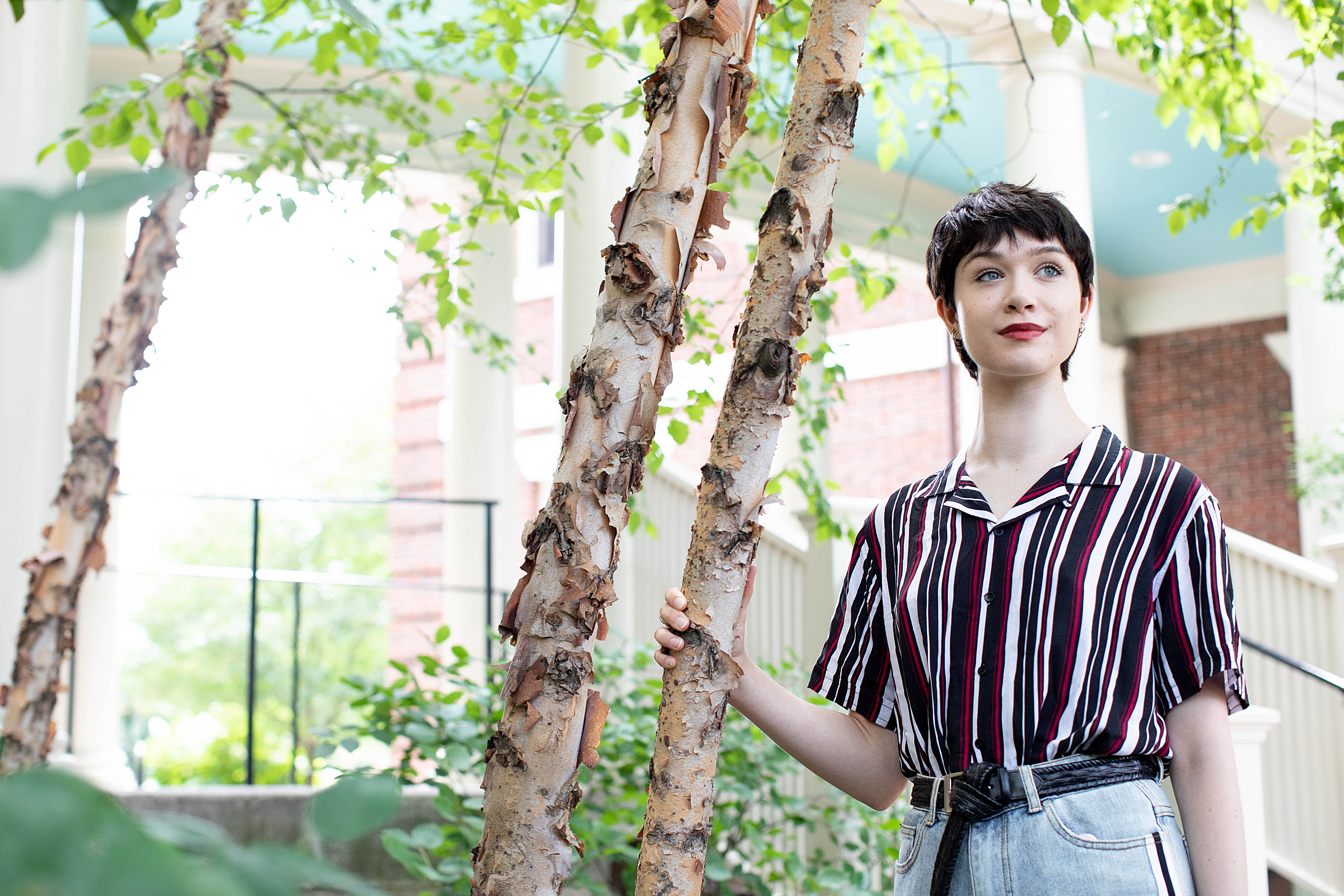
As a SHARP fellow, Hervás is collecting historical data on black women’s suffrage organizations that will eventually be part of a digital data hub called the Suffrage Portal.
“One of the goals of the project is to think about the 19th Amendment in a more complex and intersectional way, and not just as a simple victory story,” said Hervás, a rising junior who is pursuing a joint concentration in history and literature and women and gender studies with a secondary in mind, brain, and behavior.
Hervás sees the project as a way to expand both the narrative of suffrage and conceptions of what humanities research looks like in the 21st century.
“Humanities research can feel pretty solitary, but being in an environment that encourages you to engage with your peers and take advantage of the community aspect of the humanities can be powerful,” she said. “It’s really nice to have that support.”
For Propst, creating community through scholarship is one of the best parts of her work as a SHARP fellow.
“Sometimes it can be hard to see how what you’re doing in the humanities is going to help people down the line,” she said. “Seeing my work help 750 high school students who are going to access the humanities is awesome and makes studying the humanities really meaningful.”



